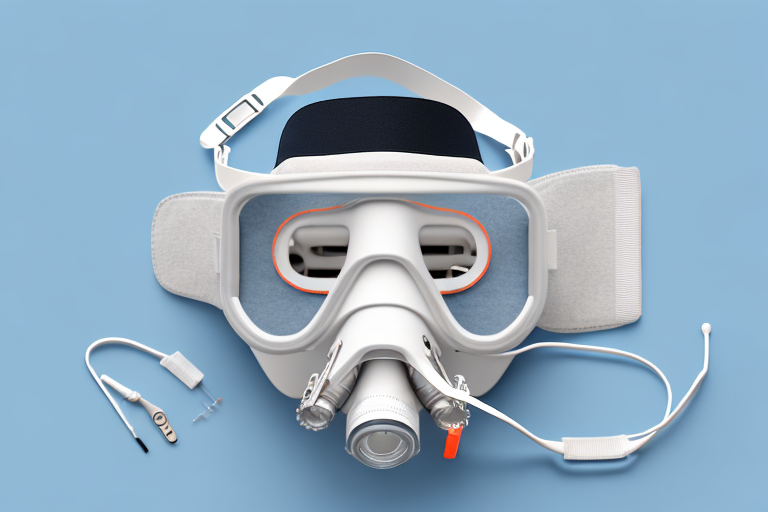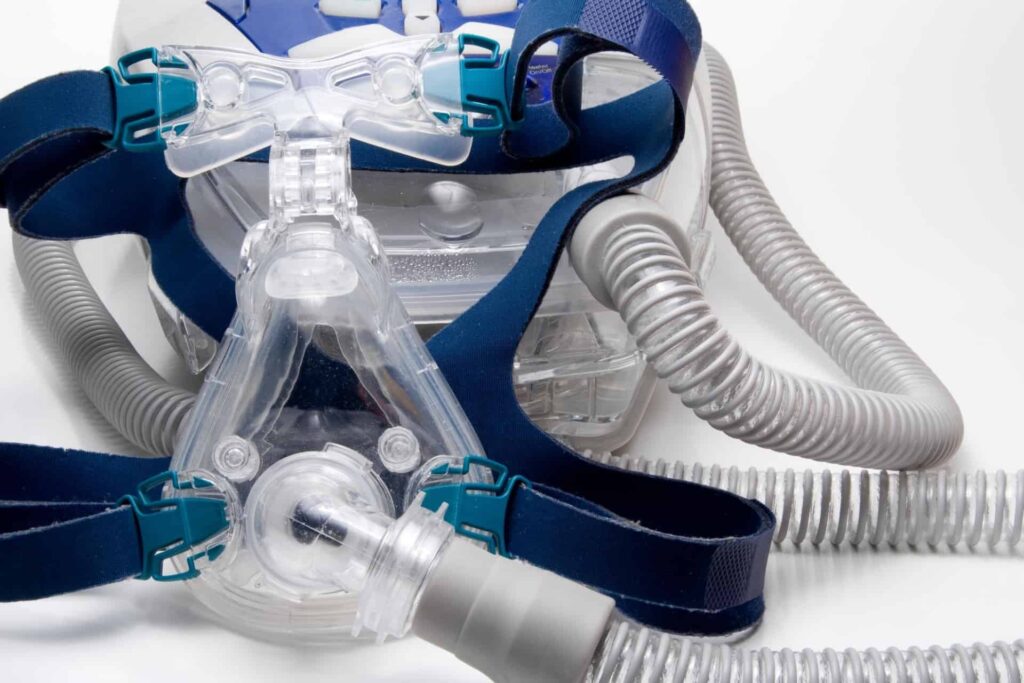CPAP masks play a critical role in the treatment of sleep apnea. These masks deliver a constant stream of air pressure to keep the airways open during sleep. However, many individuals find traditional CPAP masks uncomfortable, hindering their compliance with the treatment. To address this issue, manufacturers have been incorporating technology into CPAP masks to enhance comfort and improve user experience.
Understanding the Importance of Comfort in CPAP Masks
Comfort is a crucial factor when it comes to CPAP masks usage. Sleep health and sleep apnea patients often have to wear these masks for several hours every night, so discomfort can significantly impact their ability to adhere to treatment. Discomfort may include claustrophobic feelings, skin irritations, pressure sores, and difficulties in finding the right fit.
Let’s delve deeper into the various aspects of comfort and its significance in CPAP mask usage.
Firstly, claustrophobic feelings can be a major hindrance to consistent CPAP mask usage. The sensation of having a mask covering the face and being connected to a machine can trigger anxiety and a sense of confinement. This discomfort can make it challenging for individuals to relax and fall asleep, defeating the purpose of the treatment.
In addition to claustrophobia, skin irritations can also pose a problem. The constant contact between the mask and the skin can cause redness, itching, and even rashes. These irritations not only add to the discomfort but can also lead to further complications if left unaddressed. Click here for properly fitting CPAP masks.
Furthermore, pressure sores can develop when the mask is too tight or ill-fitting. These sores can be painful and take time to heal, making it even more difficult for patients to tolerate the mask. The discomfort caused by pressure sores can result in non-compliance and hinder the effectiveness of the treatment.

The Role of CPAP Masks in Sleep Apnea Treatment
CPAP masks are an integral part of sleep apnea treatment. They ensure adequate air pressure reaches the airways, preventing obstruction and restoring normal breathing. Without a proper mask, the desired therapeutic effects may not be achieved, leading to ineffective treatment and ongoing health issues.
It is essential to understand that CPAP masks come in various designs and styles to cater to different individuals’ needs. The right mask should provide a secure fit, allowing for a comfortable and effective treatment experience. Factors such as headgear adjustability, cushion materials, and mask sizes play a crucial role in determining the overall comfort of the mask.
Moreover, the comfort of the mask can also impact the quality of sleep experienced by the user. A comfortable mask that fits well and does not cause any discomfort can contribute to more restful sleep, improving overall well-being and daytime functioning.
The Connection Between Comfort and Compliance
Many sleep apnea patients struggle with compliance due to the discomfort associated with traditional CPAP masks. When the masks are uncomfortable, users are less likely to wear them consistently, compromising the effectiveness of treatment. Incorporating technology into CPAP masks can help improve comfort and, ultimately, enhance compliance rates.
Technological advancements have led to the development of innovative features in CPAP masks, such as adjustable straps, lightweight materials, and noise-reduction mechanisms. These advancements aim to address the discomfort issues faced by users and encourage consistent usage.
Additionally, the availability of different mask styles, including nasal masks, full-face masks, and nasal pillow masks, allows individuals to find the most comfortable option for their specific needs. By offering a variety of choices, sleep apnea patients can select a mask that suits their preferences and promotes better compliance.
In conclusion, comfort plays a vital role in CPAP mask usage. Addressing discomfort-related issues such as claustrophobia, skin irritations, and pressure sores is crucial to ensure consistent and effective treatment. By understanding the connection between comfort and compliance, healthcare professionals and manufacturers can work together to develop CPAP masks that prioritize comfort without compromising therapeutic efficacy.

The Evolution of CPAP Mask Technology
CPAP mask technology has come a long way since its inception. Early designs focused primarily on functionality, with limited consideration given to user comfort. However, advancements in technology have revolutionized the industry, making comfort a top priority for manufacturers.
As the demand for CPAP masks grew, manufacturers recognized the need to improve the overall user experience. They began to invest in research and development, aiming to create masks that not only effectively treated sleep apnea but also provided maximum comfort for the wearer.
From Basic Designs to Advanced Features
Traditionally, CPAP masks consisted of rigid frames and standard silicone cushions. These one-size-fits-all designs often resulted in poor fit and discomfort. However, manufacturers have introduced innovative features such as adjustable headgear, cushion modifications, and improved seal technology to enhance comfort.
Adjustable headgear has been a game-changer in CPAP mask technology. It allows users to customize the fit of their masks, ensuring a secure and comfortable seal. This feature not only improves comfort but also reduces air leaks, enhancing the effectiveness of the treatment.
Cushion modifications have also played a significant role in improving comfort. Manufacturers have developed cushions with varying thicknesses and materials to cater to different facial structures and sensitivities. These advancements have minimized pressure points and reduced skin irritations, making the CPAP experience more pleasant for users.
Furthermore, improved seal technology has addressed one of the most common complaints among CPAP users – air leaks. Manufacturers have incorporated advanced sealing mechanisms, such as dual-wall cushions and gel-filled inserts, to create a better seal and prevent air from escaping. This not only improves comfort but also optimizes the therapy by ensuring that the prescribed pressure is delivered effectively.
How Technology Has Improved Mask Comfort
Technological advancements in CPAP masks have led to significant improvements in comfort. Automatic pressure adjustment features allow the masks to adapt to the user’s breathing patterns, reducing discomfort caused by excessive pressure. These smart masks monitor the user’s breathing and adjust the air pressure accordingly, creating a more natural and comfortable breathing experience.
Additionally, advancements in materials have resulted in softer and more pliable masks that conform better to the user’s facial contours, minimizing discomfort and skin irritations. Manufacturers have introduced hypoallergenic materials, such as memory foam and silicone gels, which are not only gentle on the skin but also provide a custom fit for maximum comfort.
Moreover, manufacturers have recognized the importance of reducing noise levels associated with CPAP therapy. They have incorporated noise reduction technologies, such as whisper-quiet motors and diffusers, to create a more peaceful sleep environment for users.
In conclusion, the evolution of CPAP mask technology has been driven by the desire to improve user comfort. Manufacturers have introduced innovative features, materials, and technologies to enhance the overall CPAP experience. As a result, CPAP users can now enjoy a more comfortable and effective treatment, leading to better sleep and improved quality of life.
Key Technological Innovations in CPAP Masks
Several key technological innovations have transformed the CPAP mask landscape, ensuring optimal comfort for users.
CPAP masks have come a long way in terms of technological advancements, providing users with enhanced comfort and improved therapy. Let’s explore some of the key innovations that have revolutionized CPAP masks.
Smart Pressure Adjustments for Optimal Comfort
One of the most significant advancements in CPAP mask technology is the incorporation of smart pressure adjustment features. With this innovation, CPAP masks can automatically adjust the air pressure delivered based on the user’s needs.
This intelligent technology ensures that the user receives the necessary therapeutic benefits without subjecting them to unnecessary discomfort caused by excessive pressure. By constantly monitoring the user’s breathing patterns and adjusting the pressure accordingly, these masks provide a customized and comfortable experience.
Imagine having a CPAP mask that adapts to your breathing needs in real time, ensuring optimal therapy without any compromise on comfort. This innovation has truly transformed the CPAP mask landscape, making it easier for users to adhere to their therapy and enjoy a restful night’s sleep.
Advanced Materials for Better Fit and Feel
Another significant advancement in CPAP mask technology is the use of advanced materials that provide a better fit and feel for users. Traditional CPAP masks often cause discomfort, skin irritations, and pressure sores, making it challenging for users to wear them for extended periods.
However, with the introduction of new materials such as memory foam and hypoallergenic silicone, CPAP masks now offer a more comfortable experience. Memory foam molds to the user’s facial contours, providing a customized fit that minimizes leaks and enhances comfort.
Hypoallergenic silicone, on the other hand, is gentle on the skin and reduces the risk of allergies or irritations. This material ensures that users can wear their masks for extended periods without discomfort, allowing them to experience the full benefits of their CPAP therapy.
Moreover, these advanced materials also contribute to the overall durability of CPAP masks, ensuring that they can withstand regular use and maintain their performance over time.
In conclusion, the technological innovations in CPAP masks have significantly improved the comfort and effectiveness of these devices. Smart pressure adjustments and the use of advanced materials have revolutionized the CPAP mask landscape, making it easier for users to adhere to their therapy and enjoy a restful night’s sleep. As technology continues to advance, we can expect further enhancements in CPAP mask design, ultimately benefiting individuals with sleep apnea and other respiratory conditions.
Future Trends in CPAP Mask Technology
The future of CPAP mask technology holds even more promise for enhanced comfort and usability.
Predicted Technological Advancements
Experts predict that CPAP masks will continue to evolve, incorporating features such as built-in humidity control to improve user comfort. Additionally, advancements in sensor technology may allow masks to collect data on sleep patterns, providing insight into user sleep quality and helping to optimize treatment.
The Potential Impact on User Comfort and Satisfaction
Future technological advancements in CPAP masks have the potential to greatly impact user comfort and satisfaction. As masks become more comfortable and user-friendly, sleep apnea patients will be more inclined to adhere to treatment, leading to better overall health outcomes.
Choosing the Right Technologically Advanced CPAP Mask
When selecting a technologically advanced CPAP mask, several factors should be considered.
Factors to Consider When Selecting a Mask
Firstly, the mask should be suitable for the individual’s specific needs and sleep apnea conditions. Factors such as mask type, fit, and size should be carefully evaluated. Additionally, the ease of use, maintenance requirements, and availability of technical support from the manufacturer are crucial considerations.
The Role of Personal Comfort and Fit in Selection
Ultimately, personal comfort and fit should be the deciding factors when selecting a CPAP mask. Each individual is unique, and what works for one person may not work for another. Trying different masks and seeking professional guidance ensures finding the right mask that maximizes comfort and improves treatment outcomes.
Incorporating technology into CPAP masks has revolutionized the sleep apnea treatment landscape. By prioritizing comfort and usability, these technologically advanced masks have the potential to greatly improve adherence and overall patient satisfaction. As the industry continues to innovate, sleep apnea patients can look forward to further advancements that enhance their comfort and well-being.

